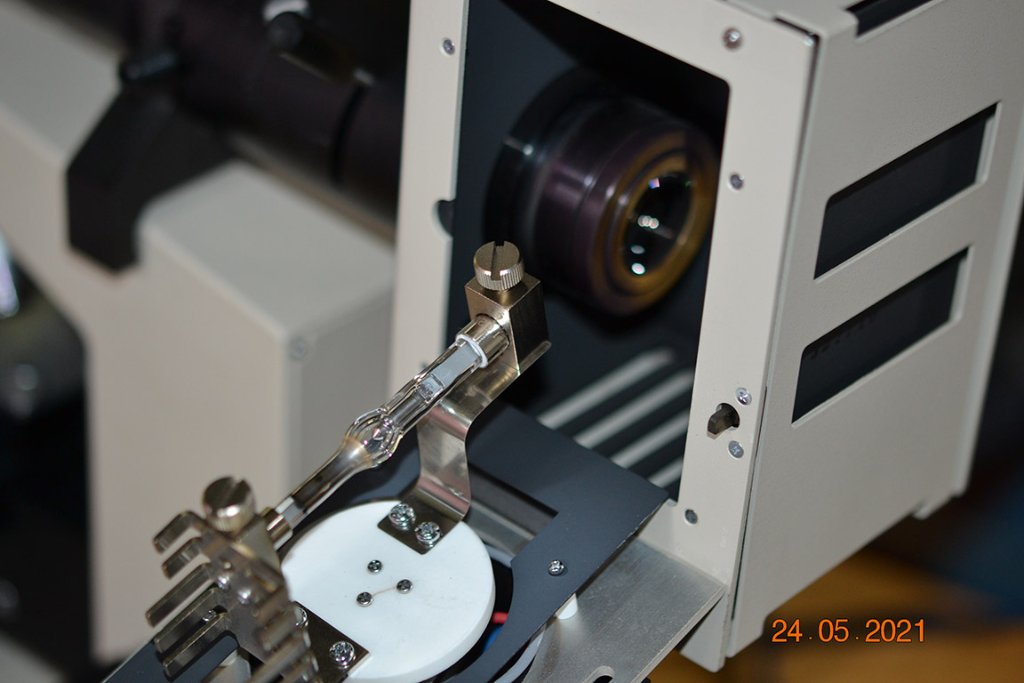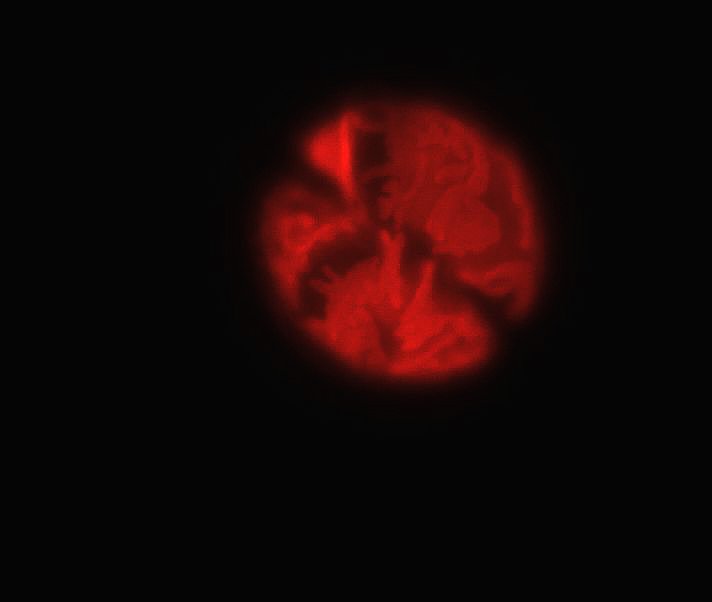Page 1 of 1
DIY Fluorescence Microscopy
Posted: Sun May 16, 2021 8:44 pm
by Narogen
Hopefully this is the right place to post this.
Over the past few months I've ben working on making a fluorescence microscopy setup, which has now culminated in me imaging a potato slice using incident light fluorescence and a dual-stain with auramine and acridine dyes. The upgrade cost less than 100 USD and was made using mostly second-hand parts sourced from ebay. I have attached my full write up as a pdf below.
https://drive.google.com/file/d/1_6OMSZ ... sp=sharing
Hope you guys find it interesting! At the moment I'm working on a petrographic/polarisation microscopy upgrade including bertrand lenses and vertical illumination, as well as a 3D-printed universal stage (aka fedorov's table).
Re: DIY Fluorescence Microscopy
Posted: Sun May 16, 2021 9:33 pm
by MichaelG.
Great work !!
MichaelG.
Re: DIY Fluorescence Microscopy
Posted: Sun May 16, 2021 9:45 pm
by Hobbyst46
Interesting project. Thanks for posting.
I wonder about the epi-illuminator setup. If the microscope has finite tube length optics and the epi-illuminator is is inserted as shown, does it change the tube length ? another question - do you get adequate simultaneous bright field (from the trans illuminator) and fluorescence ? or does one have to watch brightfield and fluorescence separately, and they are not parfocal ?
Re: DIY Fluorescence Microscopy
Posted: Mon May 17, 2021 12:45 am
by Narogen
does it change the tube length ?
Yes, it would make sense that the tube length is changed when I add in the epi illuminator, and yet despite this I have not really seen any difference in terms of the image, focusing distance etc. when it is attatched.
Not sure how exactly the optics work out but it seems to be unaffected; considering the illuminator is designed to be one that you can remove from the microscope I suspect that maybe this was already taken into the design considerations for the optics that the microscope/illuminator contains.
do you get adequate simultaneous bright field (from the trans illuminator) and fluorescence ?
Yes, I am able to do both at once. The fluorescence illuminator provides a very focused but still quite a weak light, so if I wish to use both simultaneously I have to make the brighfield illumination from the bottom very dim.
Re: DIY Fluorescence Microscopy
Posted: Tue Jun 01, 2021 9:42 am
by chrisimbee
hi ; I was given a epifluorescence module with my BH2 olympus and inside the module theres is a lens to compensate the extra optical lengh and it augment the overall magnification by a 1.25 factor.
I didnt have the lamp house with the module so I bought a second hand one on ebay and replaced the mercury vapor lamp with a 3W led @ 455nm (royal blue) wich was cheaper and safer.

- 24 mai 21 lampe house.jpg (96.19 KiB) Viewed 12423 times

- 24 mai 21 1er prototype brouillon.jpg (101.07 KiB) Viewed 12423 times
and here are some result .

- 26 mai 21 sporange fougère 470nm adaptateur sony.jpg (50.52 KiB) Viewed 12423 times

- 16 mai 21 algue fluo.jpg (23.29 KiB) Viewed 12423 times
Re: DIY Fluorescence Microscopy
Posted: Tue Jun 01, 2021 9:45 am
by chrisimbee
as a fluorescent dye I mainly use the orange acridin (you can buy it on ebay at a really good price) as it changes color depending on the pH and if it links to DNA or RNA ; dead or alive matter...
It works great with live protozoa and bacteriae for example..
3W led @ 455nm or 470nm are available on ebay at a very cheap price and the led driver for a 3W (you cant use batteries) are available both on amazon and ebay : select a driver with constant current output ( 700mA ) with voltage up to 4V. The led will regulate itself the voltage as long as the current is constant.
Also for a 3W led it seems I dont need a radiator . Its been working fine so far. My first try was with the 3W led @ 470nm from a blue light torch and inside it there's no radiator either.
Re: DIY Fluorescence Microscopy
Posted: Fri Jul 08, 2022 2:02 am
by idealisticcormorant
3W led @ 455nm or 470nm are available on ebay at a very cheap price and the led driver for a 3W (you cant use batteries) are available both on amazon and ebay : select a driver with constant current output ( 700mA ) with voltage up to 4V. The led will regulate itself the voltage as long as the current is constant.
drift boss
Re: DIY Fluorescence Microscopy
Posted: Wed Aug 10, 2022 7:48 am
by susanrowland
The epi-illuminator setup has me curious.
heardle game Does inserting an epi-illuminator as illustrated affect a microscope with optics that have a finite tube length? Adding the epi illuminator should change the tube length, however despite this, I have not really noticed a difference in the image or focusing distance.
Re: DIY Fluorescence Microscopy
Posted: Wed Aug 10, 2022 7:59 am
by Alexander
The Leitz epi-illuminator used in this project has a optical element built in that compensates the added distance.